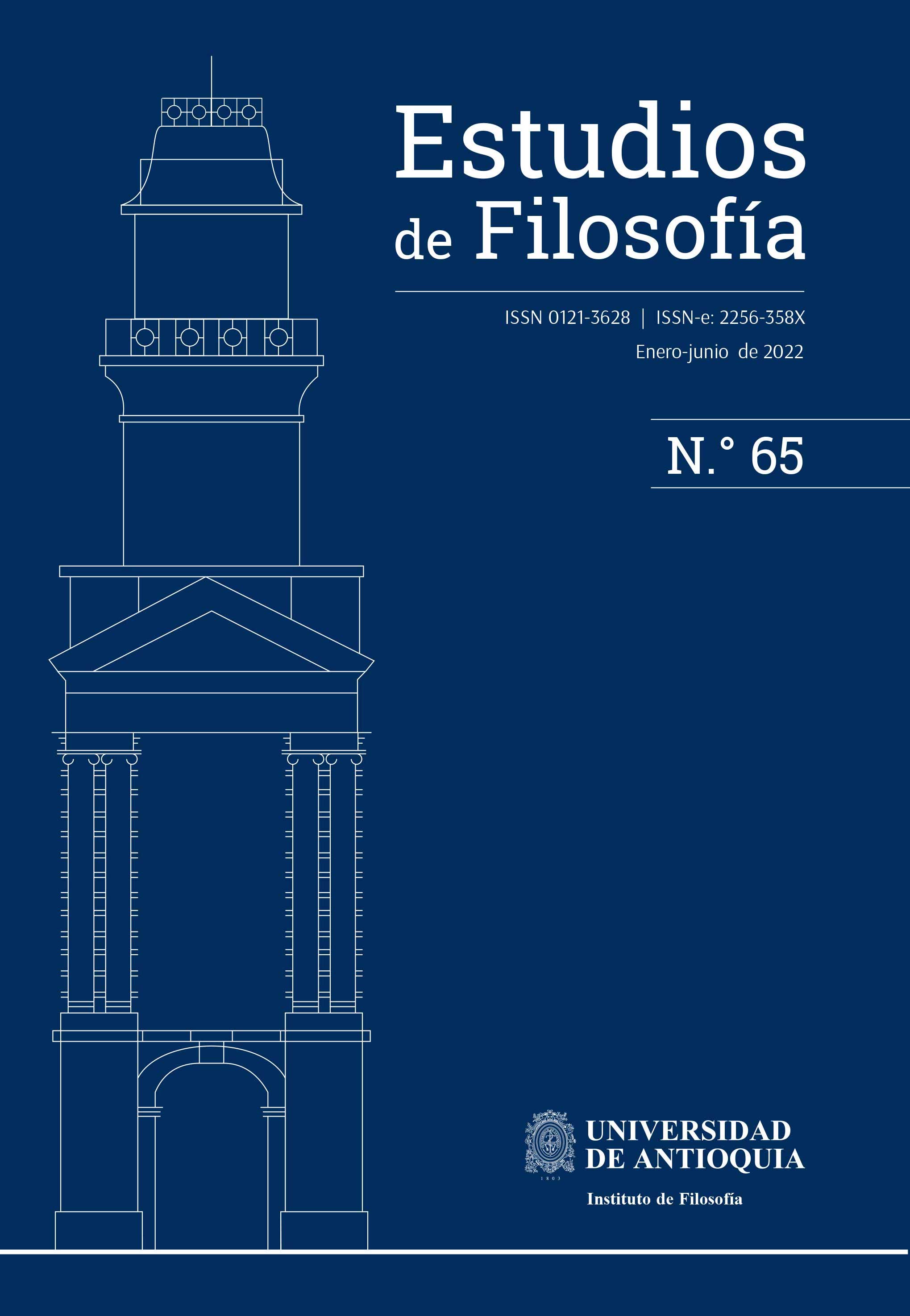Is bioethics a science?
DOI:
https://doi.org/10.17533/udea.ef.345758Keywords:
bioethics, science, ethical cognitivism, naturalism, normativityAbstract
This article enquiries whether normative bioethics can be a science. The article aims to address the conditions of possibility for bioethics to be considered a science, without directly answering the question. The article focuses on two conditions that we typically associate with our common concept of science: truth and knowledge, on the one hand, and naturalization, on the other. Bioethics should be able to provide moral truths and therefore moral knowledge so that we could consider it as a science. On the other hand, the normative character of bioethics raises the question of whether it is possible to naturalize it and make it compatible with a scientific perspective. The article argues that, for normative bioethics to be considered a science, a cognitive and naturalistic stance should be taken on ethics.
Downloads
References
Azariah, J. (2009). Bioethics science: is it? Journal of Medical Ethics and History of Medicine, 2(18). https://www.ncbi.nlm.nih.gov/pmc/articles/PMC3713923/
Beauchamp, T. & Childress, J. (2013). Principles of biomedical ethics, 7a ed. Oxford University Press.
Brink, D. (1989). Moral realism and the foundations of ethics. Cambridge University Press. https://doi.org/10.1017/CBO9780511624612
Dilthey, W. (1883/1944). Introducción a las ciencias del espíritu. Obras I. (E. Ímaz, Trad.). FCE.
Gibbard, A. (1990). Wise choices, apt feelings. Harvard University Press.
Godfrey-Smith, P. (2003). Theory and reality. An introduction to the philosophy of science. The University of Chicago Press. https://doi.org/10.7208/chicago/9780226300610.001.0001
Grasa Hernández, R. (1992). El evolucionismo: de Darwin a la sociobiología. Cincel.
Griffin, J. (2015). What can philosophy contribute to ethics? Oxford University Press. https://doi.org/10.1093/acprof:oso/9780198748090.001.0001
Holland, S. (2003). Bioethics. A philosophical introduction. Polity.
James, S. (2011). An introduction to evolutionary ethics. Wiley-Blackwell.
Joyce, R. (2006). The evolution of morality. MIT Press. https://doi.org/10.7551/mitpress/2880.001.0001
Kelly, E. (2004). Against naturalism in ethics. En M. De Caro & D. MacArthur (Comps.), Naturalism in question. Harvard University Press.
Kirchin, S. (2012). Mataethics. Palgrave. https://doi.org/10.1057/9781137284839
Mackie, J.L. (1977). Ethics: inventing right and wrong. Penguin.
Macklin, R. (1999). Against relativism. Cultural diversity and the search for ethical universals in medicine. Oxford University Press.
McGrath, S. (2011). Skepticism about moral expertise as a puzzle for moral realism. The Journal of Philosophy, 108, 111–137. https://doi.org/10.5840/jphil201110837
Miller, A. (2003). An introduction to contemporary metaethics. Polity.
Pérez Tamayo, R. (1987). Acerca de Minerva. FCE.
Pérez Tamayo, R. (1990). ¿Existe el método científico? Historia y realidad. FCE.
Pérez Tamayo, R. (2010). ¿Qué es la ciencia?. Reflexiones sobre la ciencia (pp. 143-160). El Colegio Nacional-Seminario de Cultura Mexicana.
Pigden, C. (1993). Naturalism. En P. Singer (Comp.), A companion to ethics (pp. 421-431). Blackwell.
Potter, V.R. (1970). Bioethics, the science of survival. Perspectives in biology and medicine, 14, 127–153. https://doi.org/10.1353/pbm.1970.0015
Quine, W.V.O. (1953). Two dogmas of empiricism. From a logical point of view (pp. 20-26). Harvard University Press.
Ruse, M. (1998). Evolution and ethics: the sociobiological approach. En L. Pojman (Comp.), Ethical theory: classical and contemporary readings. Wadsworth.
Ruse, M. & Wilson, E. O. (1986). Moral philosophy as applied science. Philosophy, 61, 173–192. https://doi.org/10.1017/S0031819100021057
Russell, B. (1949/2001). The scientific outlook, 2a ed. Routledge.
Schlick, M. (1930/1965). ¿Qué pretende la ética? En A. J. Ayer (Comp.), El positivismo lógico (pp. 251-268). FCE.
Stevenson, C. (1944). Ethics and language. Yale University Press.
Street, S. (2006). A Darwinian dilemma for realist theories of value. Philosophical Studies, 127, 109–166. https://doi.org/10.1007/s11098-005-1726-6
Toulmin, S. (1959). An examination of the place of reason in ethics. Cambridge University Press.
Wilson, E. O. (1980). Sociobiology. The abridged edition. Harvard University Press.
Wilson, E. O. (2011). La ciencia como la nueva filosofía. Entrevista con J. Baggini y J. Stangroom. Lo que piensan los filósofos. Paidós.
Wright, C. (1992). Truth and objectivity. Harvard University Press.
Wright, C. (1996). Truth in ethics. En B. Hooker (Comp.), Truth in ethics (pp. 1-18). Blackwell.
Published
How to Cite
Issue
Section
Categories
License
Copyright (c) 2021 Estudios de Filosofía

This work is licensed under a Creative Commons Attribution-NonCommercial-ShareAlike 4.0 International License.
Authors who publish with this journal agree to the following terms:
1. The Author retains copyright in the Work, where the term "Work" shall include all digital objects that may result in subsequent electronic publication or distribution.
2. Upon acceptance of the Work, the author shall grant to the Publisher the right of first publication of the Work.
3. The Author shall grant to the Publisher a nonexclusive perpetual right and license to publish, archive, and make accessible the Work in whole or in part in all forms of media now or hereafter known under a Creative Commons Attribution-NoCommercia-ShareAlike (CC BY-NC-SA 4.0), or its equivalent, which, for the avoidance of doubt, allows others to copy, distribute, and transmit the Work under the following conditions: (a) Attribution: Other users must attribute the Work in the manner specified by the author as indicated on the journal Web site;(b) Noncommercial: Other users (including Publisher) may not use this Work for commercial purposes;
4. The Author is able to enter into separate, additional contractual arrangements for the nonexclusive distribution of the journal's published version of the Work (e.g., post it to an institutional repository or publish it in a book), as long as there is provided in the document an acknowledgement of its initial publication in this journal;
5. Authors are permitted, and Estudios de Filosofía promotes, to post online the preprint manuscript of the Work in institutional repositories or on their Websites prior to and during the submission process, as it can lead to productive exchanges, as well as earlier and greater citation of published work (see The Effect of Open Access). Any such posting made before acceptance and publication of the Work is expected be updated upon publication to include a reference to the Estudios de Filosofía's assigned URL to the Article and its final published version in Estudios de Filosofía.















